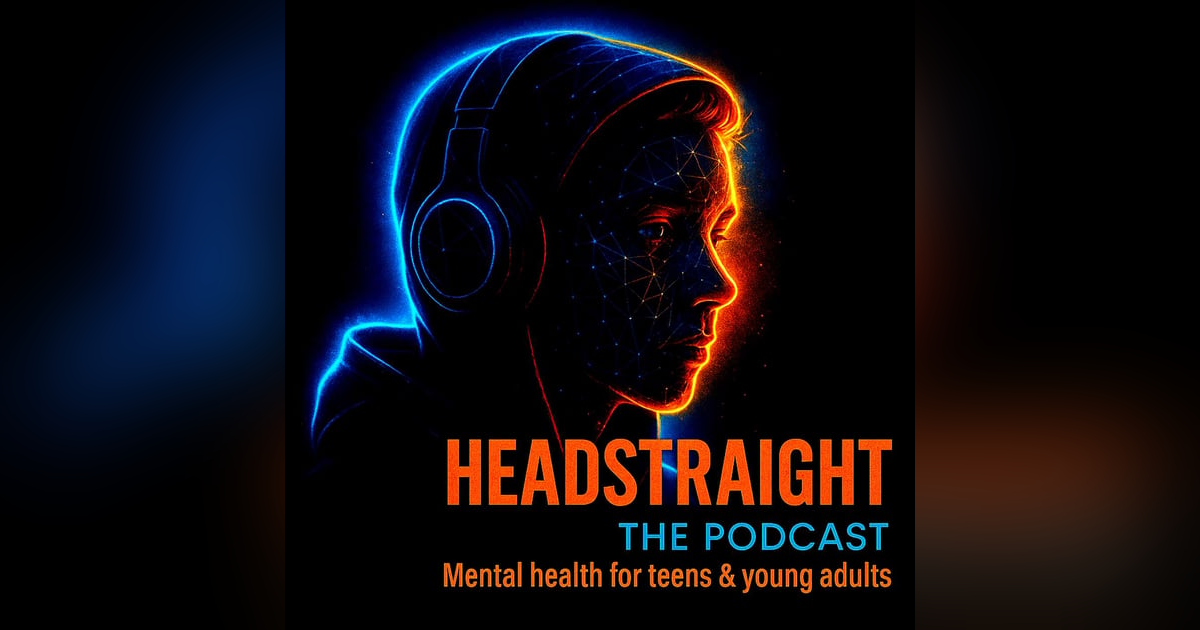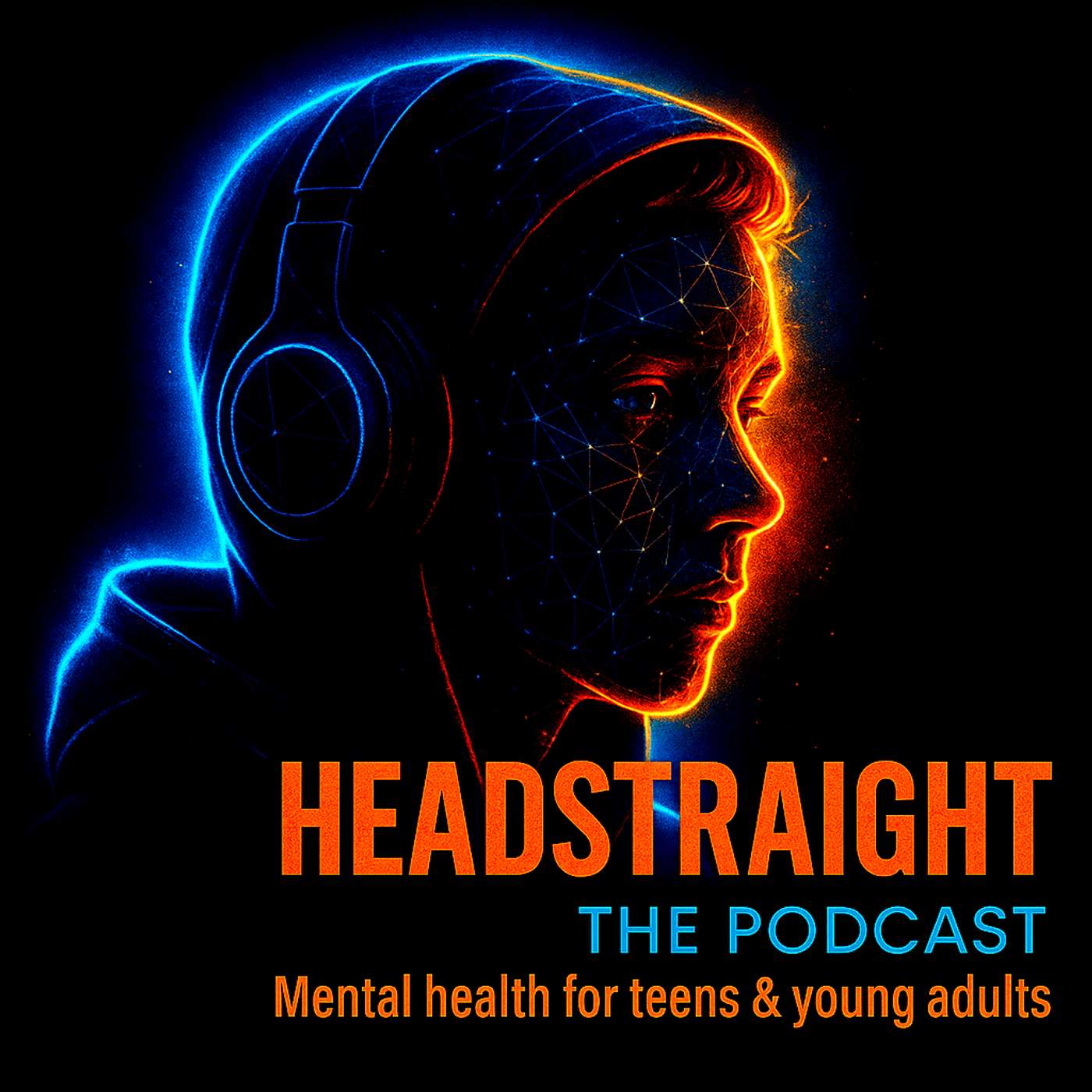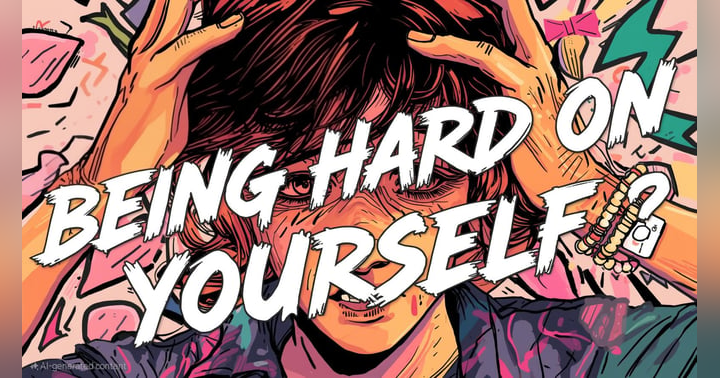How to Stop Tearing Yourself Down (and Actually Have Your Own Back)


In this powerful episode of Headstraight, we tackle the critical topic of teen mental health by exploring how to become your own biggest ally through building self-esteem, self-reliance, and emotional well-being. Teen mental health challenges like harsh self-criticism and toxic self-talk can severely impact emotional wellbeing and motivation, but we're here to offer real talk mental health insights that help you break free from negative cycles.
Join Mark Taylor as he discusses the damaging effects of internal criticism on teen mental health and shares practical strategies tailored for teens looking for support to make better choices and feel safe within themselves. You'll learn proven techniques such as reframing your self-talk, daily emotional check-ins, and the “voice swap” method to reinforce growth and resilience.
If you’re seeking honest guidance and teen mental health support to improve your emotional wellbeing and stop self-sabotage, this episode is a must-listen. Tune in to get the tools and mindset to back yourself confidently—even when your inner critic is at its loudest.
Want the Cheat Sheet? Click the Link or copy and paste the following into your browser:
https://docs.google.com/document/d/1mgI4GWLJmfHzx-3fDZ_WlluEpW82_zKQ/edit?usp=sharing
Got something to say? - come send me a message at www.headstraight.co.uk/contact/
or send me a voice note at www.headstraight.co.uk/voicemail/
Click here if you want more info about the host
If you need more information about helplines, services or what do to if you're in a crisis, take a look at our resource page: https://www.headstraight.co.uk/resources
Click here to view the episode transcript.
Mark:
My name's Mark, and you're listening to Head Straight. Hello, you lot, and welcome back. Now let's be brutally honest. Most of us speak to ourselves in a way that we never speak to anyone else. You miss a deadline.
Mark:
Typical. You're useless. You feel overwhelmed. Get a grip. You try something new and stumble.
Mark:
Why do you even bother with that? And the worst part, you've probably come to believe that this voice is helpful, that being hard on yourself will somehow whip you into shape. But let's be clear, that voice isn't making you better. It's breaking you down. This episode is all about changing that.
Mark:
Not into some fluffy, delusional love yourself no matter what speech, but into something grounded, honest and powerful. It's time to become the kind of voice in your head that backs you, challenges you with kindness and gets you back on track when things go sidewards. Because if you're going to keep growing, you can't be at war with yourself. Now if you've been listening to this season, you've already done the hard part. You've noticed your patterns, faced a discomfort, learned how to hold a boundary, and kept going through resistance.
Mark:
But none of that's gonna stick if the voice in your head is still tearing it all down. This episode is the next step. It's about going from self awareness to self advocacy. So the work that you've done actually has the space to grow. So let's start by getting really honest about the voice that most of us are carrying around inside.
Mark:
So let me introduce you to the inner critic. The inner critic sounds like your voice but it's not really yours. It's a mash up of unspoken rules don't be too much old echoes you'll never be good enough Cultural noise, only perfect people deserve respect. It shows up most when you're vulnerable, as in trying something new. Tired when your brain's low on energy.
Mark:
And alone when no one else is there to ground you. And even though it feels like protection, as in I'm keeping myself in check, it's actually just holding you back. So let's explore why you believe the critic even when it hurts. The critic doesn't stick around because it's true. It sticks around because it once felt safe.
Mark:
Maybe you learned that making mistakes equaled rejection, that staying small equaled survival, that harshness equaled strength. So being your own critic became a strategy. If I'm hard on myself, no one else can hurt me. If I spot my flaws first, I'll stay in control. If I never go easy on myself, I'll never get soft.
Mark:
But here's what the research says. Harsh self talk increases stress, procrastination, and shame. Self compassion, on the other hand, increases motivation, resilience, and follow through. So the critic may feel familiar, but it's not functional. It's time to build something that actually works for you.
Mark:
Let's set the record straight. Being your own ally isn't about giving yourself a free pass. It's about being honest without shame, kind without delusion, firm without cruelty. And it sounds like That was tough, but I'm still proud I tried. You got it wrong, but that's how learning works.
Mark:
This doesn't feel good, so let's check-in and adjust. It adapts. It knows when you need a push and when you need a pause. This isn't about fake positivity. It's psychological grit.
Mark:
And it's also how you bounce back without breaking yourself. So how do we turn criticism into support? Well, let's take a look at some practical tools. The first one is the voice swap technique. It's a way to reframe your harsh self talk by imagining it said to someone else.
Mark:
And here's how you can do it. Write down what your critic said after a mistake. For example, you're such a failure. Then picture a friend saying this about themselves. What would you say back to them?
Mark:
Now, what you say back to them, write that down because that is your new internal script. Read it back to yourself. Yeah. Out loud if you can. Now the reason why this works is because it creates distance and rewires the script.
Mark:
It breaks the familiarity of the critical voice, which then allows you to stop believing it. Next, the daily check-in. Now this is a ten second pause where you ask yourself, what do I need right now? Now there are various ways in which you can do this. You can set a phone reminder or link it to a daily habit for instance when you're brushing your teeth and then ask yourself the question without judgment.
Mark:
And listen honestly to the answer. Don't filter it. Are you tired? Overwhelmed? Needing space?
Mark:
I want you to accept it even if that's not what you want to hear in that moment. And then respond with something small or simple that honors that need. Now the reason why this works is because you can't be your own ally if you never listen to yourself. And this builds that micro trust over time. Something else you can try?
Mark:
The inner ally journal. Now this is a log of small moments when you showed up for yourself. And the way that you can do this is maybe waiting until the end of the day and jot down one ally moment. Doesn't matter whether it's big or small. It could be, I took a break.
Mark:
I asked for help. I didn't spiral. Now the reason why this works is because your brain is biased to remember failures. This trains it to track support and over time it gives you a new story to believe about yourself. Another way is reframing scripts.
Mark:
It's about swapping all toxic thoughts for grounded, compassionate ones. You can reframe I'm falling behind to I'm moving at my pace and that's valid. You can reframe I always screw up to I'm still learning and that's allowed. And you can reframe I'll never change to I'm already in the process and progress takes time. The reason why this works is because language shapes belief and belief shapes action.
Mark:
So start with the words and the rest will just follow. Now there are going be times when it feels too hard to be kind to yourself. Because let's be realistic, sometimes self compassion feels fake, Especially if you were raised on criticism, you think kindness equals weakness, or you genuinely don't feel worth supporting. Now if that is you, then start with neutrality. Try I know I'm not feeling it, but I'm still going to take care of myself.
Mark:
I don't love myself today but I'm not going to abandon myself either. This is hard and I'm here for it. Because kindness is a muscle it builds through repetition not instant belief. So let me set you this week's challenge. So we're going to try voice swap.
Mark:
Pick a recent harsh moment and write down what your critic said. Now rewrite it as if you were talking to someone you love. I want you to do daily check ins. Ask yourself what do I need right now? And then do one small thing to respond to that.
Mark:
Use the Ally Journal. Want you to write about one moment every day where you didn't abandon yourself. Now this doesn't need to be deep, it just needs to be honest. And I also want you to reframe one script. Choose a line your critic repeats and write a softer, truer version of this and repeat it whenever that thought returns.
Mark:
Now as usual, I've written a cheat sheet for this episode and you'll find the link in the description of the show notes. Now if this episode has helped you to call out your inner critic or it's given you one new way to support yourself, want you to share the love. If you know somebody else could do with listening to this episode, I want you to share it with them. Share it on social media, even just talk about it in a conversation. Just let them know because it just might help them change and grow in the way that you're trying to.
Mark:
And when you share it, I really appreciate it too. It just helps this podcast grow. And now let's take a quick look at what we're gonna do in the next episode. In the next one, we're gonna be wrapping up season two by looking at the whole picture. What have you shifted?
Mark:
What have you faced? And more importantly, how do you hold on to that momentum when the noise of life kicks back in? You've come this far, so let's lock it in.













